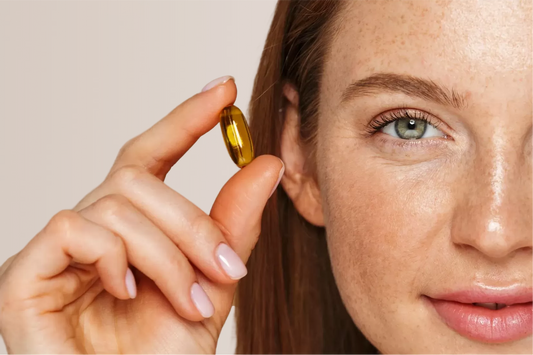Benefits of black coffee in empty stomach
Benefits of black coffee in empty stomach
Black coffee is widely enjoyed for its stimulating effects and potential health benefits. Drinking black coffee on an empty stomach can provide unique advantages, but it may also have some drawbacks. In this blog, we explore the benefits and possible side effects of consuming black coffee without food and offer guidance on the best times to enjoy it.
Nutritional Value of Black Coffee
Black coffee benefits include being low in calories, offering small amounts of vitamins, minerals, and beneficial compounds. An 8-ounce cup typically contains:
- Calories: 2
- Protein: 0 grams
- Fat: 0 grams
- Carbs: 0 grams
- Caffeine: 96 mg
- Riboflavin: 14% of the Daily Value (DV)
- Potassium: 3% of the DV
Black coffee also contains antioxidants like chlorogenic acid, which can help reduce inflammation and stabilize blood sugar levels.
10 Proven Health Benefits of Black Coffee on an Empty Stomach
-
Boosts Metabolism and Fat Burning: The caffeine in black coffee acts as a stimulant that increases the body's metabolic rate, helping to burn more calories. This effect is particularly noticeable during exercise, supporting weight loss.
-
Improves Mental Focus: By blocking adenosine, a neurotransmitter that promotes sleep, black coffee enhances alertness and cognitive function, making it easier to stay productive throughout the day.
-
Anti-Inflammatory Properties: Chlorogenic acid and other antioxidants in black coffee help reduce inflammation, benefiting cardiovascular health and improving joint function.
-
Improves Exercise Performance: Caffeine mobilizes fat stores, which provides energy during physical activity. Drinking black coffee before a workout can improve endurance and athletic performance.
-
Supports Gut Health: Chlorogenic acids in black coffee have a prebiotic effect that encourages the growth of good gut bacteria, enhancing digestion and reducing risks of digestive issues.
-
Lowers Risk of Type 2 Diabetes: Compounds in black coffee can improve insulin sensitivity, reducing the risk of developing type 2 diabetes in regular coffee drinkers.
-
Supports Liver Health: Drinking black coffee is linked to a reduced risk of liver diseases such as fatty liver disease, cirrhosis, and liver cancer due to its anti-inflammatory properties.
-
Protects Against Parkinson's Disease: Regular consumption of black coffee may help delay or reduce the risk of developing Parkinson's disease by offering neuroprotective benefits.
-
Reduces Cancer Risk: Antioxidants in black coffee have been linked to a lower risk of cancers such as liver, colon, and breast cancer by preventing the growth of cancer cells.
-
Enhances Mood and Fights Depression: Black coffee stimulates the release of dopamine and serotonin, improving mood and potentially reducing symptoms of depression in regular drinkers.
Side Effects of Black Coffee
Drinking black coffee on an empty stomach may lead to:
-
Increased Acidity and Digestive Issues: Black coffee can stimulate stomach acid production, leading to discomfort, heartburn, or indigestion.
-
Disrupted Sleep Cycles: Drinking black coffee, especially later in the day, can interfere with sleep quality and quantity due to its stimulant effects. The caffeine in coffee blocks adenosine receptors in the brain, which normally promote sleep.
-
Elevated Stress Hormone Levels: Black coffee can stimulate stomach acid production, leading to discomfort, heartburn, or indigestion.
-
Jitteriness and Anxiety: The high caffeine content can cause nervousness, especially for those sensitive to caffeine.
-
Headaches and Migraines: Consuming too much black coffee or experiencing caffeine withdrawal can trigger headaches in some individuals. The constriction and dilation of blood vessels in the brain caused by caffeine fluctuations may contribute to these headaches.
- Bone Health Concerns: Excessive caffeine intake has been associated with reduced calcium absorption, potentially impacting bone health over time.
Does Black Coffee Raise Stress Hormone Levels?
Consuming black coffee on an empty stomach may lead to a more significant increase in cortisol, the primary stress hormone, compared to drinking coffee with food.
This can be a concern for individuals with existing stress or anxiety issues, as the elevated cortisol levels can exacerbate feelings of stress and anxiety. However, one study found that a single cup of black coffee actually reduced serum cortisol levels, rather than increasing them. The effects of caffeine on cortisol levels may also differ between men and women, with some evidence suggesting caffeine interacts with peripheral metabolic mechanisms differently in females versus males.
Black Coffee for Weight Loss
-
Boosts Metabolism: Caffeine helps enhance fat burning.
-
Suppresses Appetite: Drinking black coffee may help reduce hunger temporarily.
-
Chlorogenic Acid Benefits: May slow glucose release and reduce fat cell formation.
Limitations of Drinking Black Coffee on an Empty Stomach
While black coffee has its benefits, it should be consumed in moderation. Drinking black coffee on an empty stomach may not be suitable for everyone, especially those with digestive issues or high anxiety levels. Pairing it with food can help reduce these risks.
Read more about: Gut Health Effects on Skin
How Coffee Impacts Digestion
Coffee can have a noticeable stimulating effect on the digestive system, offering several potential benefits:
-
Coffee and GERD: The acidity and caffeine in coffee might worsen symptoms of gastroesophageal reflux disease (GERD) in some individuals, causing heartburn or indigestion. However, research remains inconclusive, and coffee does not directly cause GERD for most people.
-
Bowel Movements: Coffee, especially due to its caffeine content, can stimulate the colon and encourage bowel movements, effectively
How Long Does Coffee Take to Provide a Caffeine Fix?
The caffeine in black coffee is absorbed quickly, typically within 15 to 45 minutes after drinking it. This fast absorption provides a noticeable energy boost. However, the timing and effects can vary based on factors such as genetics, age, and whether the coffee was consumed on an empty stomach or alongside food.
- Rapid Absorption: When drinking coffee on an empty stomach, the body absorbs caffeine faster, leading to a quicker burst of energy.
- Individual Differences: The effects can vary based on individual factors like age and genetics, with peak effects usually felt between 30-60 minutes. On average, the energy boost from caffeine lasts around 3-4 hours.
When Should You Drink Coffee?
-
Morning: Drinking coffee in the morning can provide a quick boost, but beware of increased acidity.
-
Pre-Workout: Have a cup 30-60 minutes before exercise to improve performance.
-
Avoid Late Evenings: Drinking coffee too late can disrupt sleep, so avoid consuming it 6-8 hours before bedtime.
-
Moderation is Key: Experts recommend limiting coffee consumption to 3-4 cups per day for most adults.
- Listening to Your Body: Pay attention to how your body reacts to coffee and adjust your consumption accordingly. Some people may be more sensitive to the effects of caffeine than others.
Conclusion
Drinking black coffee on an empty stomach can provide a range of benefits, such as enhanced metabolism, mental focus, and weight management. However, it may also lead to digestive discomfort or increased anxiety for some people. Moderation is key—enjoy black coffee in a way that aligns with your personal health needs and preferences.
For more information on the benefits of black coffee and how it affects the nervous system, check out our blog post on Coffee and Nervous System.
Frequently Asked Questions
-
Is it okay to drink black coffee on an empty stomach?
Yes, but it may cause acidity or discomfort for some individuals. Moderation is advised. -
Does black coffee help with weight loss?
Yes, it can boost metabolism and aid in fat burning, but it should be part of a balanced diet. -
What are the side effects of drinking black coffee?
Possible side effects include digestive issues, jitteriness, and increased cortisol levels. -
When is the best time to drink black coffee?
The best time is in the morning or before a workout, but avoid it before bedtime.
For additional healthy lifestyle tips, visit our website at b-health.shop.



